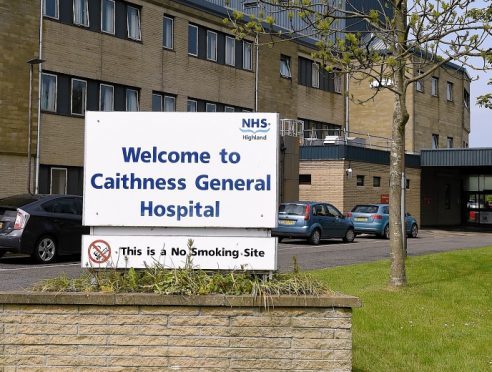A controversial downgrading of maternity services in Caithness will get under way this month after the shake-up was fast-tracked.
Concern was expressed last night after NHS Highland announced that midwives would move to being on-call overnight at the community maternity unit at Caithness General Hospital from January 30.
It is part of a change agreed last year which will switch the Caithness service from consultant-led to midwife-led, and was previously expected to begin in April.
From the end of this month, midwives in the unit will move to the standard 10-hour or 12-hour shift model.
During the day, midwives will cover the service from 8am to 8pm, and two midwives will be on-call from 8pm to 8am.
NHS Highland local lead midwife Mary Burnside said: “The number of contacts for the maternity unit overnight is very small. By moving to on-call it provides a more sustainable model.
“It will free-up midwifery hours which will add to the staffing level during the day when activity is busiest and where the greatest need is in relation to antenatal care, postnatal care and collaborative working with colleagues in health visiting and child protection to support vulnerable women and families.”
The health board said the change was being introduced “sooner than planned” due to “current midwifery staffing pressures brought about through vacant posts and retirements”.
Campaign group Caithness Health Action Team (Chat) was formed amid anger at changes to local services, with more and more mothers having to travel 100 miles to Inverness to have their baby.
Group secretary Nicola Sinclair said: “We were aware that NHS Highland planned to change the staffing model at Caithness General Hospital but did not expect it to be implemented so soon, especially as we understand there are serious concerns among staff about the suitability of the new arrangements.
“We fear it’s another example of NHS Highland rushing through changes they are not adequately prepared for.
“If a woman goes into labour during the night she will now be assessed over the phone by a midwife in Raigmore, who in many cases will advise the patient to make her own way to Inverness.
“In the case of mothers on the low risk pathway, they would be asked to present themselves at A&E in Caithness, leaving A&E staff to care for her until the midwife arrives.
“We’re worried about this approach to triage and care, which we feel introduces further risk to women already having to endure a gruelling 100-plus mile trip to give birth.”
